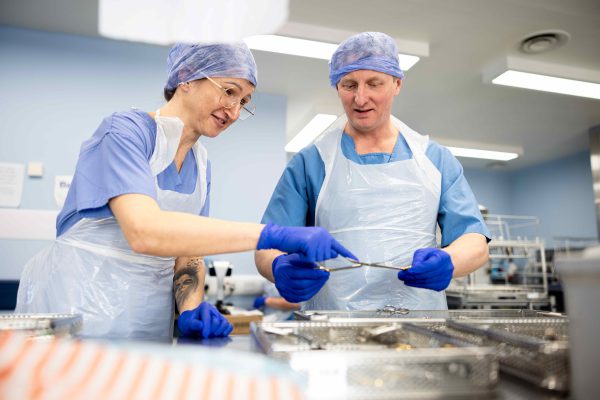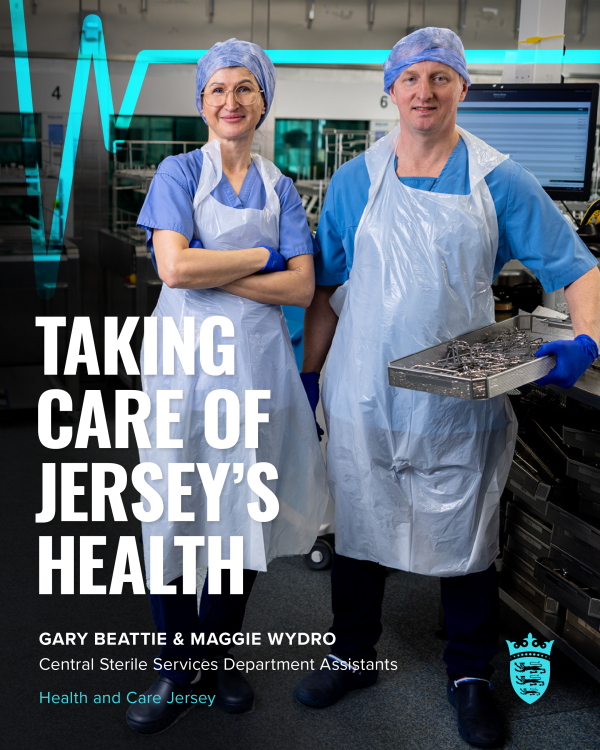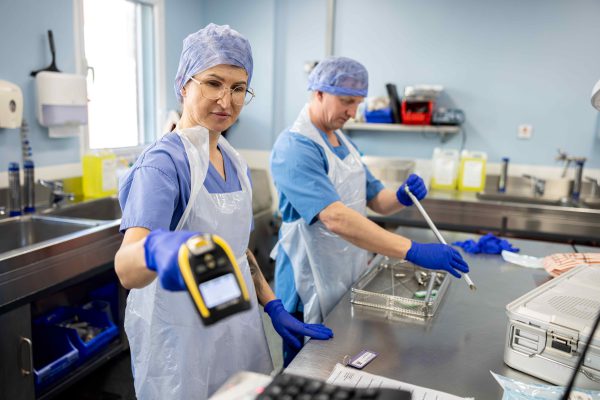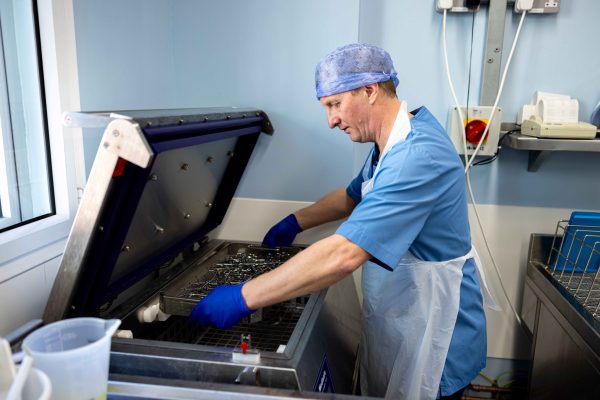
A sterile environment is vital in operating theatres. We have all seen surgeons on TV dramas or docu-series going through extensive hand-washing routines before beginning a procedure, but who are the unsung heroes behind the scenes who ensure the environment and equipment used is clean to ensure patient safety and optimise recovery?
In Jersey, this work is carried out in a state-of-the-art controlled environment near Five Oaks.
Gary Beattie and Maggie Wydro work as Assistants in the Central Sterile Services Department and share a pride in the vital role they carry out in ensuring that used surgical instruments, are thoroughly cleaned and free from viable bacteria, viruses and spores.
They are part of a team who work seven days a week dealing with five lorry-loads in and out daily and in excess of 65,000 trays of medical equipment each year.

They are part of a team who work seven days a week dealing with five lorry-loads in and out daily and in excess of 65,000 trays of medical equipment each year
Gary previously worked in different roles including auto electrics, carpentry and the leisure industry. A friend suggested sterile services as a career option and after doing some research he felt it would be an interesting and challenging role. “The only similarity to my previous jobs was the attention to detail required,” he said, before admitting that he found the job had lived up to his expectations as well as providing a great deal of job satisfaction.
Maggie, for whom this is a second role in a nine-year civil service career, agrees: “The job of sterile services technician carries a lot of responsibility, but it also has a lot of rewards which keep me motivated. We work alongside the hospital, preparing surgical instruments and medical devices. Knowing our work contributes to helping patients and benefits our Island community is very satisfying.”

For those tempted by the role, Maggie explained the characteristics required: “You must pay close attention to detail to ensure all surgical instruments and medical devices are handled correctly. You must be eager to learn with lots of patience and have the right amount of confidence.”
The range of equipment handled is varied, everything from rib spreaders to forceps, dental instruments to endoscopes, some of which need taking apart before cleaning. In addition to the roles that have to be completed by hand, the staff have specialised washer disinfectors and steriliser machines.
Items carry barcodes so they can be scanned up to 13 times as they move through the process. “You have to recognise and remember the different instruments and medical devices and how they are stripped, prepared, cleaned and reassembled,” Gary said.
Maggie adds: “Decontamination is a complex process. It is not only cleaning, it is also disinfection, inspection, packing, labelling, sterilization and distribution.”

Teamwork and communication are vital, both within the CSSD team and the wider HCJ with staff at the hospital and other clinics. Gary explained: “We have weekly planners for different departments in the hospital and on what days they require their instruments and devices. Management prioritises our daily work.”
That communication and strong sense of teamwork is also important when introducing change. Both describe the challenge of bedding-in a new software operating system while continuing to deal with the regular daily workload. Gary reflects on a change to the hours worked on a late shift, which he described as “challenging but beneficial as it enabled both teams (shifts) to communicate with each other more easily.”
Working shifts isn’t for everybody, but it can be enjoyed, and both have achieved a work-life balance, with Gary enjoying running, boxing and reading, while Maggie is also active.
They agree that no two days are the same. Gary has enjoyed the progression through the different sections, from the washroom to inspection, assembly and packaging to the despatch room and transportation. He also enjoys sharing his knowledge and experience with new staff. For those interested in pursuing a career in sterile services, he suggests following the path he chose: “Do the research into the role and see if it suits you and your lifestyle.”
Maggie takes great pride in knowing that the work of her department helps patients to receive treatment and surgery in a sterile and safe environment. She adds: “And knowing that there aren’t too many people that have our knowledge makes this job unique. I am fortunate to be part of a great team who provide comfort and support.”
Find out more about available roles
 blog.gov.je
blog.gov.je